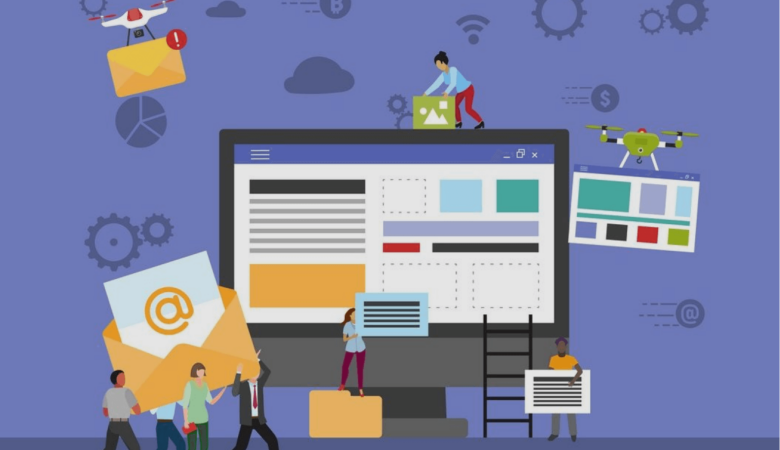Every online business you can name has one goal: increase sales and profit as much as possible. In the online environment, this all starts with a simple process: increasing traffic on your website. Look at it from this perspective, if you have an online site but you do not have enough traffic, it consumes your resources in vain.
And yet, there are so many online sites that don’t benefit from user visits. Why? To be honest, there are quite a few reasons this could be. Below are the top 10 reasons.
1. SEO optimization on irrelevant words
Each niche has certain keywords that need they aim for to rank decently in Google. If you sell TVs and you rank on Google for audio systems, it doesn’t really help you. In addition, if you try to rank yourself for an extremely general keyword (like the word “TVs”) you will notice that it’s pretty much impossible to rank decently, or, at the very least, there’s an insane amount of competition.
You have to choose something specific. Keyword research is a vital part of SEO for this very reason. Identify what users are looking for on Google and optimize those words.

2. Faulty links
Another very common cause that affects traffic is lost or defective links on the site. Have you ever gotten that infamous error 404? In this case, check where that page is on your site. You may have redirected the page, or you may have changed the URL and did not make the interconnection by 301 redirects. This can lead to the loss of links, and this will surely lead to a decrease in traffic.
3. Penalties from Google
Google’s penalties are quite rare, but cannot be eliminated from the equation. If you’ve tried to optimize the website, if you have multiple suspicious links to your site, if you have duplicate content, or if you do not respect Google’s rules, it will penalize you. If your website traffic has fallen sharply, or if you simply launch the site and fail to get visits, that’s probably the cause.

4. Site loading speed
Ask anyone, absolutely anyone, and they’ll tell you that slow loading screens will make them click away. People use the internet for their convenience, if you interrupt that in any way, you’ve most likely lost traffic.
Every website should be optimized for the fastest loading speed possible. Here are a few, very quick ways to do that:
- Use images sparingly
- Limit the amount of GIFs and videos
- Condense text
Simply explained, if your website has a lot to load, it will take a while. You have to find the balance between necessary and extra content.
5. Server issues – low-quality hosting
And here, the problems are quite common. Visits to your site can be clearly influenced by the quality of your chosen hosting. Perhaps the site is offline fixed when a large part of your users enters it. To have quality hosting, make sure that uptime is guaranteed, as high as possible. What is the uptime of a website? You can see this here.
6. Navigation issues
The way users are able to navigate your site can influence traffic. If the user finds it hard to find the information they want on the site, they will definitely leave. Try to make a site as clear as possible, with an airy and clean structure. And do not forget, the content is also extremely important. It must walk the user up to the final step – the command. If he does not find interesting content on the site, the user will leave.
The answer here, for most sites, is almost always placing the search bar in an easy to find area. Don’t hide it, make the icon small, or neglect to use one entirely. Place that search bar front and center.
7. Unoptimized mobile site
Over 70% of current traffic comes from mobile, and we can expect those numbers to go up increasingly in the next few years. A website that is not optimized for mobile will have clear deficiencies in attracting traffic. From the start, your website should be optimized for mobile. As more and more users are starting to use mobile devices to find what they’re looking for, your website can become obsolete really fast if it’s not mobile optimized.

8. Lack of promotion
You can’t find a website if you don’t know about its existence. It’s not enough to build a model website if it’s not promoted as it should be. Online promotion is the best way to bring traffic to a site, especially if it’s new. Closely related to SEO optimization, promotion is an unimaginable growth engine for your business.
With that said, look for ways to advertise your website. Whether it’s organic growth, or growth created by paid ads, growth is still growth.
9. Poor or unattractive content
If your site does not tell a story to the visitor, they will leave and avoid ever landing on your site ever again. Poor, unskilled, and unattractive content for the user will quickly deter users from visiting your website. Try to maximize the attractiveness of content through copywriting techniques in terms of text, by combining text with pictures and techniques for creating interactive content.
10. Incorrect indexing
Indexing is the process by which Google sends crawlers to your site to view, categorize content, and position you on the search engine. If the indexing was done incorrectly (either because of technical difficulties or because of mistakes made by you in optimizing the site), it will not appear on Google and therefore will not have traffic. Make sure your site is properly optimized and reindeer it on Google.

The conclusion
Hopefully you don’t have any of these issues, but if you do, try to get them resolved as quickly as possible. The web holds infinite possibilities for us all, and it’s worth taking advantage of them.
Even if you are happy with your current site traffic, try approaching a few of these issues and optimize your website as best as you can. In the end, hopefully you’ll see growth, and we all want that, don’t we?






Leave a Reply